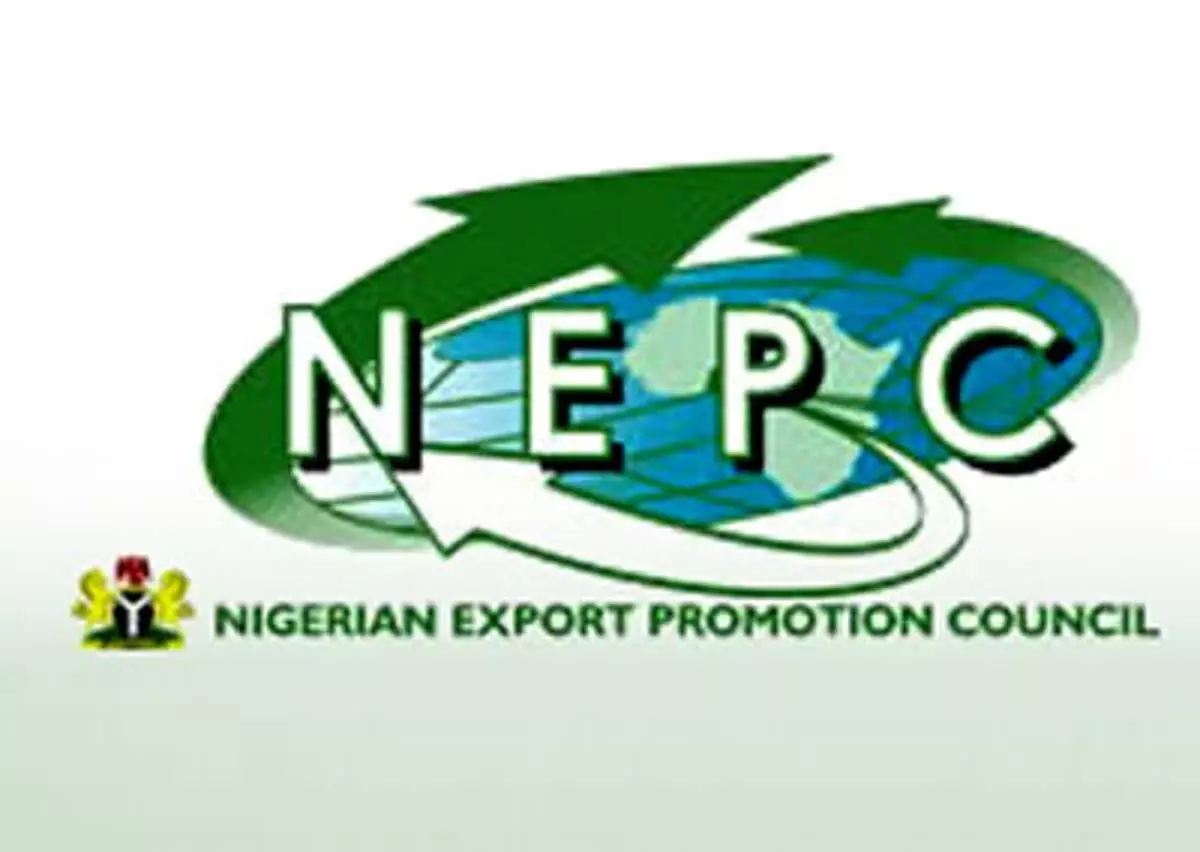- Home
- /
- Business/Economy
- /
- NEPC Designates Edo...

The Nigerian Export Promotion Council (NEPC), has designated the Edo Dry Port, otherwise known as the AMES-Edo Inland Container Dry Port, as an Export Warehouse or Aggregation Centre. The Council said that it would serve as a centre where surplus products could be aggregated, stored and transported in suitable condition to any port of shipment. […]

The Nigerian Export Promotion Council (NEPC), has designated the Edo Dry Port, otherwise known as the AMES-Edo Inland Container Dry Port, as an Export Warehouse or Aggregation Centre.
The Council said that it would serve as a centre where surplus products could be aggregated, stored and transported in suitable condition to any port of shipment.
Mr Peter Onokpasa, Head/Trade Promotion Advisor (TPA) of the NEPC, Asaba Export Assistance Office, disclosed this on Wednesday at the Edo/Delta Exporters Group and all Exporters stakeholders’ meeting.
The meeting was organised by the Atlantique Marine Engineering Services (AMES), promoters of the AMES-Edo Inland Container Dry Port.
Onakpasa said that Nigeria was ranked among the world’s leading producers of Agricultural produce such as cocoa, yam, melon, sea foods, cassava and palm oil.
He noted that in spite of the enormous comparative advantages on the produce the country still struggled to be reckoned with among their leading exporters.
He expressed disappointment that the country was unable to convert it to competitive advantage in global market place.
He said that it was in view of this development that the dry port was not only necessary but also critical in fostering agro-product export in the country.
“The Dry Port will serve as an Export Warehouse or Aggregation Centre where surplus products can be aggregated, stored and transported in suitable condition to the port of shipment.
“The exporters are going to make use of it since it is not easy going through the already congested Lagos port.
“The task of developing Nigeria’s economy requires concerted efforts by all stakeholders, such as AMES.
“NEPC will continue to partner both public and private initiatives to promote non-oil export.
“We, therefore, call on exporters, entrepreneurs and the business community to make use of the dry port to grow the economy of both Edo and Delta,” he said.
Earlier Dr Charles Akhigbe, CEO AMES-Edo, said that the NEPC in view of its various initiatives had come up with the Domestic Export Warehouse (DEW) concept.
Akhigbe explained that with the DEW concept, NEPC was designating inland dry ports to propel exports.
He noted that the potential for export within the South South and South East geo-political zones was gathering momentum, so there was the need to be prepared.
He stressed that exporting was an all comers affair, and DEW was conceived to demystify export trade.
He also said that DEW would remove the bottleneck in export and would create jobs and wealth.
Similarly, Mrs Ngozi Ibe, Head, Trade Promotion Advisor, NEPC, Benin Smart Office, said that the DEW concept would solve lots of problem bothering on supply chain.
She, therefore, urged the exporters and stakeholders to ensure that their products were well certified to pass the export hurdle.
In their various remarks stakeholders from the organised private sector commended the NEPC for the DEW initiative.
Mrs Aina Omo-Ojeonu, the President, Benin Chamber of Commerce, Industry Mines and Agriculture (BENNCIMA) said that the chamber would support the dry port.
She also said that the chamber would do everything possible to help exporters meet quality and ensure that the port succeeded.
Mrs Tina Owolabi, Edo North Coordinator, Women in the New Nigeria (WINN), expressed readiness to partner all agencies on ground when the ports received final approval as DEW.
Mr Ozaveshe Balogun, President, Edo Shippers Association, said that in order to take advantage of DEW in the port the Association would ship out finished and semi-finished agro-products.
Other stakeholders from the organised private sector who spoke at the meeting included representatives from the Edo Exporters Cluster, as well as the Delta Export Group, and Delta Exporters Cluster.
Supreme reports that other stakeholders in attendance were representatives from the Nigerian Quarantine Service and the Network of Practicing Non-oil exporters of Nigeria.
Supreme also reports that the potential of the dry port had earlier been identified by the Federal Government at a stakeholders’ meeting in March.
Also, the Inland Container Dry Port got approval in principle as a port of origin.




